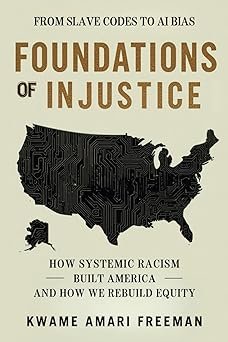 Image 1 of
Image 1 of


Healing The Wounds Of Racial Trauma 2024
When racism is the cause of PTSD, how do you treat it?
Although racial trauma is a common form of PTSD among Black, Indigenous, and other people of color (BIPOC), few therapists know how to treat it—leaving traumatized clients without the support they need to heal from the devastating effects of oppression and discrimination.
A Clinician’s Guide to Healing the Wounds of Racial Trauma fills this gap by providing a 12-session, step-by-step approach for treating race-based trauma from a cognitive behavioral (CBT) perspective. Written by Dr. Monnica Williams—an internationally recognized expert on trauma and racial health disparities—it is filled with sample scripts, worksheets, tips, and guiding questions to help clients:
Defuse from the shame and self-blame tied to their trauma
Process trauma memories through exposure and habituation
Develop a stronger, more positive ethnoracial identity
Consolidate their trauma into a cohesive and meaningful narrative
Build coping skills and social support needed to combat the stress of racism
Identify effective strategies to combat racism over the long term
Push back against racism and be a force for change
Racism makes people question their reality. With this protocol, you can ensure clients feel seen and heard, helping them survive, heal, and thrive in a society where the odds are stacked against them.
When racism is the cause of PTSD, how do you treat it?
Although racial trauma is a common form of PTSD among Black, Indigenous, and other people of color (BIPOC), few therapists know how to treat it—leaving traumatized clients without the support they need to heal from the devastating effects of oppression and discrimination.
A Clinician’s Guide to Healing the Wounds of Racial Trauma fills this gap by providing a 12-session, step-by-step approach for treating race-based trauma from a cognitive behavioral (CBT) perspective. Written by Dr. Monnica Williams—an internationally recognized expert on trauma and racial health disparities—it is filled with sample scripts, worksheets, tips, and guiding questions to help clients:
Defuse from the shame and self-blame tied to their trauma
Process trauma memories through exposure and habituation
Develop a stronger, more positive ethnoracial identity
Consolidate their trauma into a cohesive and meaningful narrative
Build coping skills and social support needed to combat the stress of racism
Identify effective strategies to combat racism over the long term
Push back against racism and be a force for change
Racism makes people question their reality. With this protocol, you can ensure clients feel seen and heard, helping them survive, heal, and thrive in a society where the odds are stacked against them.
When racism is the cause of PTSD, how do you treat it?
Although racial trauma is a common form of PTSD among Black, Indigenous, and other people of color (BIPOC), few therapists know how to treat it—leaving traumatized clients without the support they need to heal from the devastating effects of oppression and discrimination.
A Clinician’s Guide to Healing the Wounds of Racial Trauma fills this gap by providing a 12-session, step-by-step approach for treating race-based trauma from a cognitive behavioral (CBT) perspective. Written by Dr. Monnica Williams—an internationally recognized expert on trauma and racial health disparities—it is filled with sample scripts, worksheets, tips, and guiding questions to help clients:
Defuse from the shame and self-blame tied to their trauma
Process trauma memories through exposure and habituation
Develop a stronger, more positive ethnoracial identity
Consolidate their trauma into a cohesive and meaningful narrative
Build coping skills and social support needed to combat the stress of racism
Identify effective strategies to combat racism over the long term
Push back against racism and be a force for change
Racism makes people question their reality. With this protocol, you can ensure clients feel seen and heard, helping them survive, heal, and thrive in a society where the odds are stacked against them.
Publisher : PESI (October 9, 2024)
Language : English
Author: Monnica T. Williams PhD
Paperback : 192 pages
ISBN-10 : 1683737849
ISBN-13 : 978-1683737841




